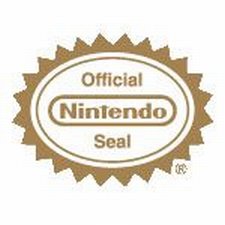 Today Gamasutra asked a bunch of analysts if Nintendo should revisit the 1980s, when the Nintendo Seal of Quality actually meant something, and then apply that mindset to the Wii.
Today Gamasutra asked a bunch of analysts if Nintendo should revisit the 1980s, when the Nintendo Seal of Quality actually meant something, and then apply that mindset to the Wii.
Apparently, there’s a dearth of low-quality, sub par efforts on the Wii right now, and it’s officially time to completely forget the DS’s early track record and again start declaring to the hilltops that the sky is falling and the bubble is set to burst.
First, some housekeeping: While developers, pundits and bloggers might crave a rebirth of the Seal, Jesse Divnich of the simExchange knocks us down a peg and reminds us what the Seal was originally intended to inform consumers about piracy:
People have forgotten why Nintendo introduced the seal in the first place: to stop piracy and to inform consumers of any extremely low-quality titles. Once piracy wasn’t an issue and game quality began to evolve, more and more titles were receiving the seal, diluting its significance.
Believe it or not, back in the 80’s, a lot of gamers made purchasing decisions based solely on the box art and the description on the back.
Fortunately, technology has evolved and we now have numerous media outlets (magazines, gaming community web sites) that have taken the place of needing a “Seal of Quality.” It is unlikely any poorly developed title will fool consumers — shame on Manhunt 2 for thinking otherwise!
Game industry go-to guy Michael Pachter says more households don’t even know what the Seal is today, so re-establishing its significance would probably do very little. Besides, he says, “Nintendo will continue to thrive in 2008. The Wii supply situation should improve by 3-to-4 million [consoles], and at least 1.5 million of those will flow to the U.S. So we should see a year-over-year increase in sales as Wiis show up at Target and Wal-Mart.”
Yay Tarjay.
Ed Barton, Screen Digest, says even with a slowdown in 2008, he believes the Wii will continue to be the bee’s knees and will maintain global installed base leadership through to 2010. Not too shabby.
“The perception that Wii games need more rigorous standards arises largely from vocal hardcore gamers who cannot, and do not want to, believe that a collection of mini-games is hammering their peccadillo du jour in the marketplace. In reality, the ‘Nintendo Seal of Quality’ promised nothing more than that the game was officially licensed, would work on the specified platform, and would be suitable for the entire family,” he said.
If you really look at things closely, the DS and Wii share a similar history when it comes to third parties, but ti’s not exact. In fact, one year in, I’d say the Wii is doing BETTER than the DS. Maybe not in software quality, where I see them as pretty much equal one year in, but instead in hardware sales. The Wii is still hard to find, in demand, and “cool” to own. The DS couldn’t say that in January 2006, not yet anyway. With that in mind, 2008 will be a pretty amazing year for Nintendo. Again.
So, what’s the quick answer about the Seal and whether or not it’s needed to spur some quality game design on the Wii?
“No thank you, not necessary.”
And a counterpoint: Maybe we should invest in a Seal of Quality for the publishers and developers we buy games from. Seems to me the problem with the Wii right now has nothing to do with Nintendo and everything to do with perplexed, confused or lazy developers.
